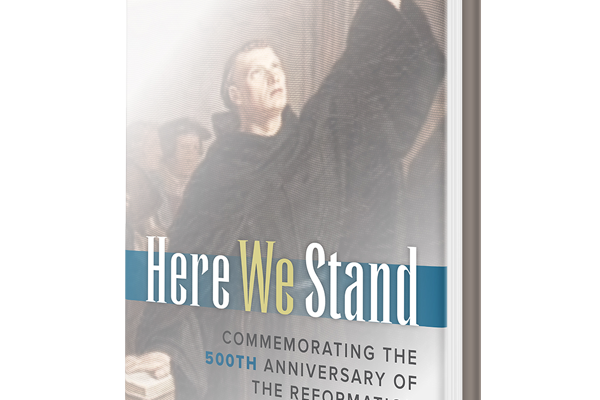Your cart is empty now.
Book Review - Here We Stand
The following review was written by Kevin Huizinga on the book Here We Stand: 500th Anniversary of the Reformation by various authors, edited by Prof. Ron Cammenga (Jenison, MI: Reformed Free Publishing, 2018). This review was originally published in the October 2023 issue of The Grandville Gleaner.
"Here We Stand," a variation on Martin Luther's powerful concluding statement from his speech at the Diet of Worms, is an appropriate title for this book and theme for the event it summarizes. In October of 2017, a conference was held to commemorate the 500th anniversary of the great Reformation. Spread over two days, it included six different speeches which were then adapted by the speakers into written form. Each section highlights a different aspect of one of the most significant events of Christ's church on this earth.
Apostasy (4): From What?
In the last three blog posts, we examined Hebrews 10:26-29, one of the apostasy passages of the epistle to the Hebrews. Perhaps even better known is Hebrews 6:4-6, the subject of this series of blog posts. It, too, describes apostasy. If Hebrews 10:26-29 describes fearful apostasy, Hebrews 6:4-6 emphasizes that such fearful apostasy is irreversible. The apostate, warns the writer to the Hebrews, cannot be recovered from his sin. That, too, makes apostasy a uniquely fearful sin.Apostasy (3): What the Apostate Deserves
There is no easy or nice way to say this: the apostate is doomed. The apostate has despised the Son of God; the apostate has despised the work of Christ on the cross; the apostate has insulted the Holy Spirit of grace; and the apostate has sinned willfully after having received the knowledge of the truth...[But] We cannot—we must not—end without hope. There is no hope for the apostate, but there is hope for us.Apostasy (2): What the Apostate Does
In verse 26 we read, “If we sin willfully.” That is a general statement. In verse 29 the Holy Spirit describes the serious sins of the apostate. He does this to underline the guilt of the apostate, to warn the reader against the sin of apostasy, and to set forth the utter hopelessness of the apostate’s case. We have in verse 29 proof that apostasy is no ordinary sin. It is not dishonesty; it is not theft; it is not adultery; and it is not murder. It is something much worse.
Book Review - Ten Commandments for Children
The following review was written by Amanda DeBoer on the book The Ten Commandments for Children by Prof. Ron Cammenga (Jenison, MI: Reformed Free Publishing, 2023). This review will be published in the Clarion, a biweekly magazine of the Canadian/American Reformed Church federation, Vol. 72 No. 14, in November 2023.
Cammenga not only teaches the commandments, but also explores their depth and practicality in an age appropriate way. He has a kind, yet unwavering, manner of writing that is very appropriate for the topic. The Ten Commandments for Children will undoubtedly be a blessing for many families.
















